Katya's isolation and despair
A gripping Janáček staging at the Opéra Royale de Wallonie, Liège
Essential loneliness: Anush Hovhanissyan as Katya Kabanova Picture © J. Berger
This review first appeared on Oper! Magazin’s Website in Jan Geisbusch’s German translation. I am grateful to the editor, Dr. Ulrich Ruhnke, for permission to publish an edited version of the original English text here.
In recent seasons the Opéra Royale de Wallonie in Liège has enjoyed notable success with repertoire outside the Franco-Italian sphere favoured by predecessors of the company’s current director, Stefano Pace. Last season I wrote about its remarkable first-ever staging of Rusalka. Pace has now followed this with a new staging of Katya Kabanová from an opera debutante, the young French spoken-theatre director Aurore Fattier. As in the case of Rusalka, the musical and dramatic performance clocks up another signal success.
Examining Janáček’s heroines and anti-heroines from a female perspective can undoubtedly bring dramaturgical rewards. Jenufa contrasts an innocent young woman with her fanatically religious stepmother. Katya Kabanová pits an erring merchant’s wife against her hypocritically devout mother-in-law. The main character in The Makropoulos Case comprises multiple female stereotypes in the form of a 300-year-old opera diva who has seen it all and done it all. Each of these characters presents both a psychological and dramaturgical challenge, well achieved here.
Toxic masculinity in the storm: Dmitry Cheblykov as Dikoj Picture © J. Berger
In her modern-dress staging, Fattier does not repeat the recent mistake of her recent counterpart at Opéra de Lyon, who dislocated the action to a contemporary urban apartment block. With her set designers, Marc Lainé and Stephan Zimmerli, her costume designer Prunelle Rulens, and especially her creator of video images, Vincent Pinckaers, Fattier tells us precisely where we are: rural Russia in the proximity of the river Volga, so crucial to the action of Janáček’s libretto (based on Alexander Ostrovsky’s play The Storm). We are either in the present day or the recent past. The Kabanov household, clearly upper middle-class, have two servants, Glaša and Fekluša, here rolled into one in the brightly sung and vividly acted performance of Anne-Lise Polchlopek. Nino Surguladze’s Kabanicha is a tarty glamour-puss with peroxide blonde hair, chain-smoking throughout: this is a highly unconventional conception of this repellant woman, who shows a ferociously rigid moral face to the world, yet in private drinks vodka from the bottle and indulges in extra-curricular S & M with Dmitry Cheblykov’s similarly youthful Dikoy. In private he may allow her to tow him around on a lead, like a dog, but elsewhere he displays his toxic masculinity, baring his muscled torso and throwing his weight around in front of Boris, his nephew and ward.
The rural community depicted by Fattier is vividly populated with extras, including children dancing round the set – a raised patio over a grassy knoll adjacent to the river – and an older girl, who snaps the adults with the camera of her mobile phone (though it is surely a misstep to have her photographing Katya and Boris together in their secret tryst in Kabanicha’s locked garden). As the wealthy family emerges from church at their entrance scene, they are accompanied by a Russian orthodox priest in full regalia, who appears like a figure from the distant past - a refugee, perhaps, from Mussorgsky’s Khovanshchina, like a guardian of New not-quite-Believers, but emblematic of the claustrophobic regime to which Katya and her downtrodden husband Tichon are subject.
Moral hypocrisy: Nino Surguladze’s peroxide Kabanicha eyes up Cheblykov’s Dikoj Picture © J. Berger
It’s a strength of Fattier’s staging that this community is depicted so convincingly, with the simplest of means. The director draws well conceived portrayals of the principal characters, with only one singer who might be considered a Janáček specialist - Jana Kurucová, who sang the (usually) soprano role of the Foreign Princess in Liège’s Rusalka last year, but here sings Varvara, more traditionally these days a mezzo. Kurucová is a touch mature for this role, but her bright, penetrating timbre sounded effortlessly at home with this music, especially the folksong-like melodies she sings with Alexey Dolgov’s Kurdryaš: the latter is luxury casting of a singer who has sung both Lensky and Pinkerton in Liège, but it’s the peach among the three tenor roles in this opera (indeed the only sympathetic male figure). I wasn’t sure why Fattier decided to make him blind, wearing dark glasses and sporting a foldable stick but, despite this odd disguise, the character’s irrepressible optimism came across forcefully, especially in the Act Two love scene.
Here Anush Hovhanissyan and Anton Rositskiy blossomed vocally after a slightly tentative start. Katya is the Armenian soprano’s first Janáček role, while the Ukrainian tenor has already made a remarkable transition from florid high-lying Mozart, Rossini and Meyerbeer to Tchaikovsky leads and the Prince in Rusalka. His effortless top lends Boris a ‘romantic’ kinship with Dvořák’s Prince, and the character is hardly less fickle, but Janáček pinpoints his flaws so much more effectively and concisely.
Contemplating oblivion: Hovhanissyan’s despairing Katya Picture © J. Berger
Although Hovhannisyan is relatively unfamiliar with the idiom, she sings several Russian roles, including Tatyana, Lisa and Tamara in Rubinstein’s The Demon, and her vocal performance grew in confidence through the evening. Her warm timbre may lack the cutting edge of a born Janáček heroine, but she is a most responsive actor, registering her humiliation at the hands of Surguladze’s adamantine Kabanicha, her passionate nature in her encounters with her weak husband Tichon and her would-be lover Boris, and her desperation to escape an intolerable home environment. This Katya may be surrounded by people who love her (Tichon, Varvara, her neighbours’ children), but in the final scene she registers with disarming truthfulness the essential loneliness of the character. Fattier denotes Katya’s suicide by killing the lights and reprising footage of the Volga from the opening scene, reinforcing a moment of madness and despair.
Kabanicha’s triumph: Katya confesses adultery (left to right) Cheblykov (Dikoy), Surguladze (Kabanicha), Hovhanissyan (Katya) Picture J. Berger
This, of course, counts as Kabanicha’s triumph, an impression underlined by Surguladze with her chilling, stabbing expression of thanks to the assembled populace who carry in Katy’s drowned corpse. The Georgian mezzo may be small in stature, but vocally and dramatically she enlarges this distasteful character with the authority of her trenchant singing and stage presence.
Michael Güttler's conducting underlined the composer’s taut sense of musical drama, revelling in the lyrical effusions of a piece which Janáček, writing to his muse and friend Kamila Stösslova, claimed as his ‘Batrflay’(a reference to Puccini’s Madama Butterfly). In this Liège performance, Katya’s tragedy was hardly less pole-axing, though more viscerally compelling, than Cio-Cio-San’s.
Janáček: Katya Kabanova
Cast and Creatives
Katya Kabanová Anush Hovhannisyan Boris Grigorievič Anton Rositskiy Marfa Ignatieva Kabanová (Kabanicha) Nino Surguladze Tichon Kabanov Magnus Vigilius Varvara Jana Kurucová Vanya Kudriaš Alexey Dolgov Dikoj Dmitry Cheblykov Kuligin Daniel Miroslaw Glaša/Fekluša Anne-Lise Polchlopek
Conductor Michael Güttler Director Aurore Fattier Sets Marc Lainé/Stephan Zimmerli Costumes Prunelle Rulens Lighting Anne Vaglio Video Vincent Pinckaers.
Website: operaliege.be




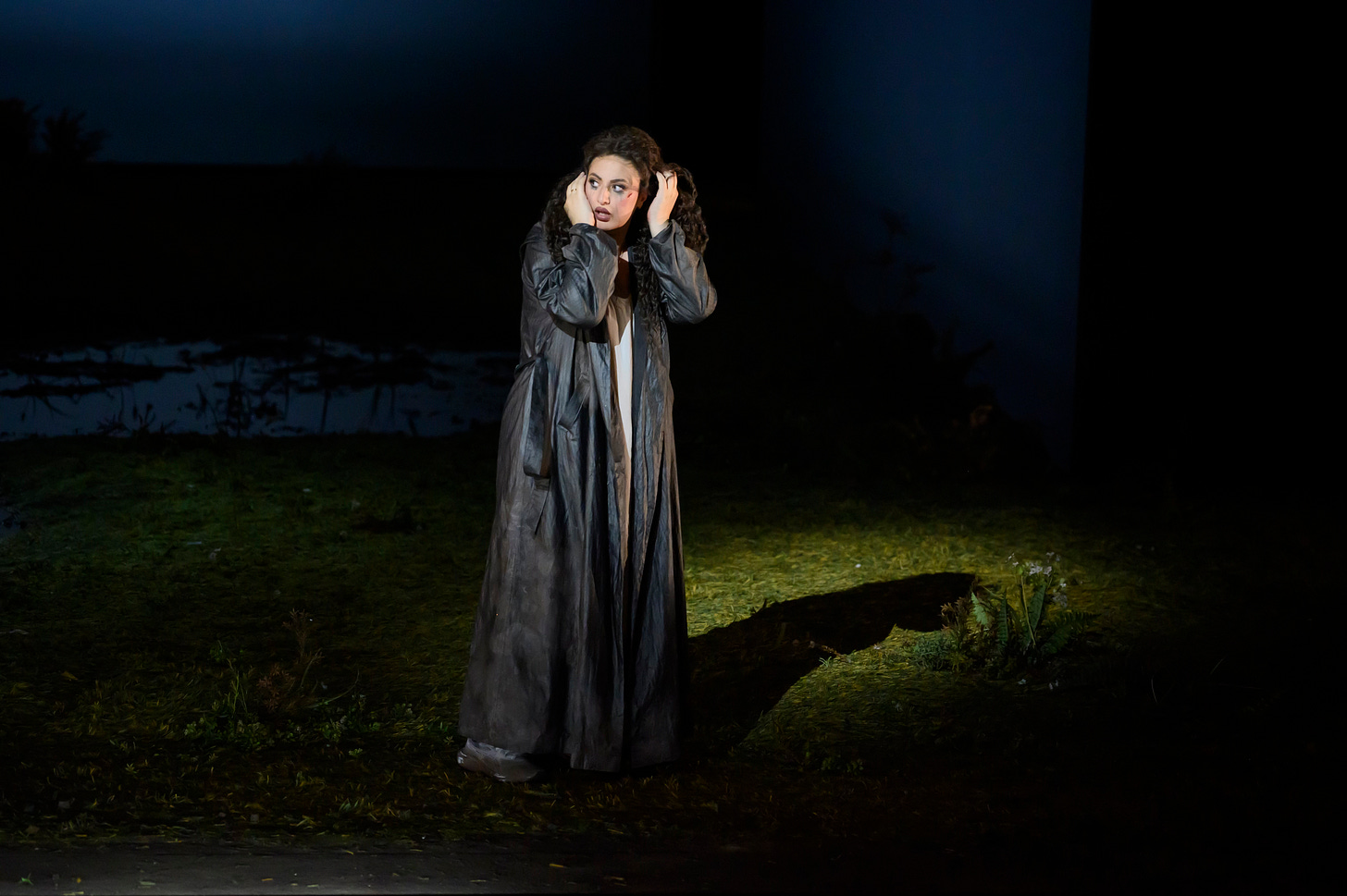
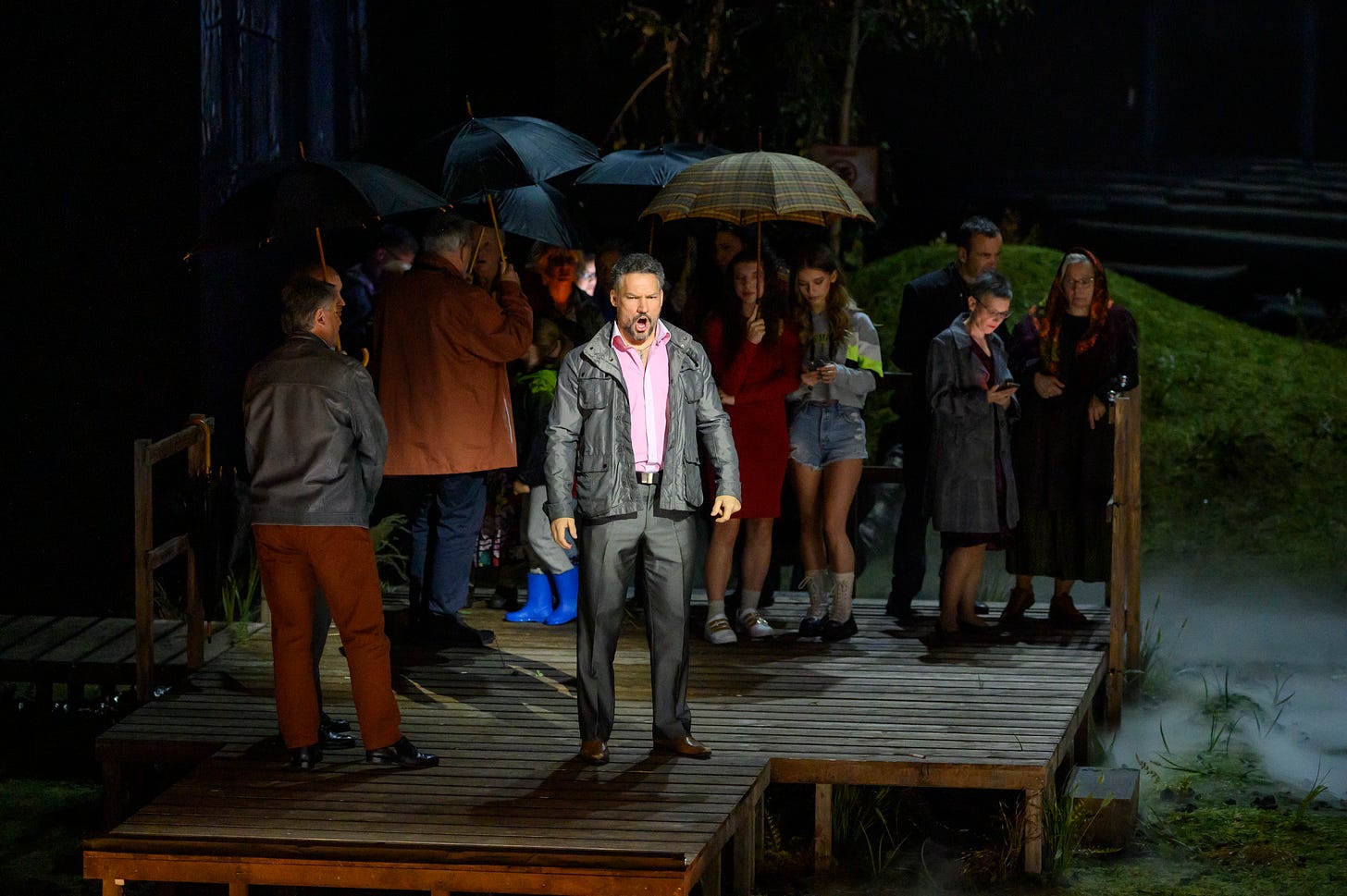
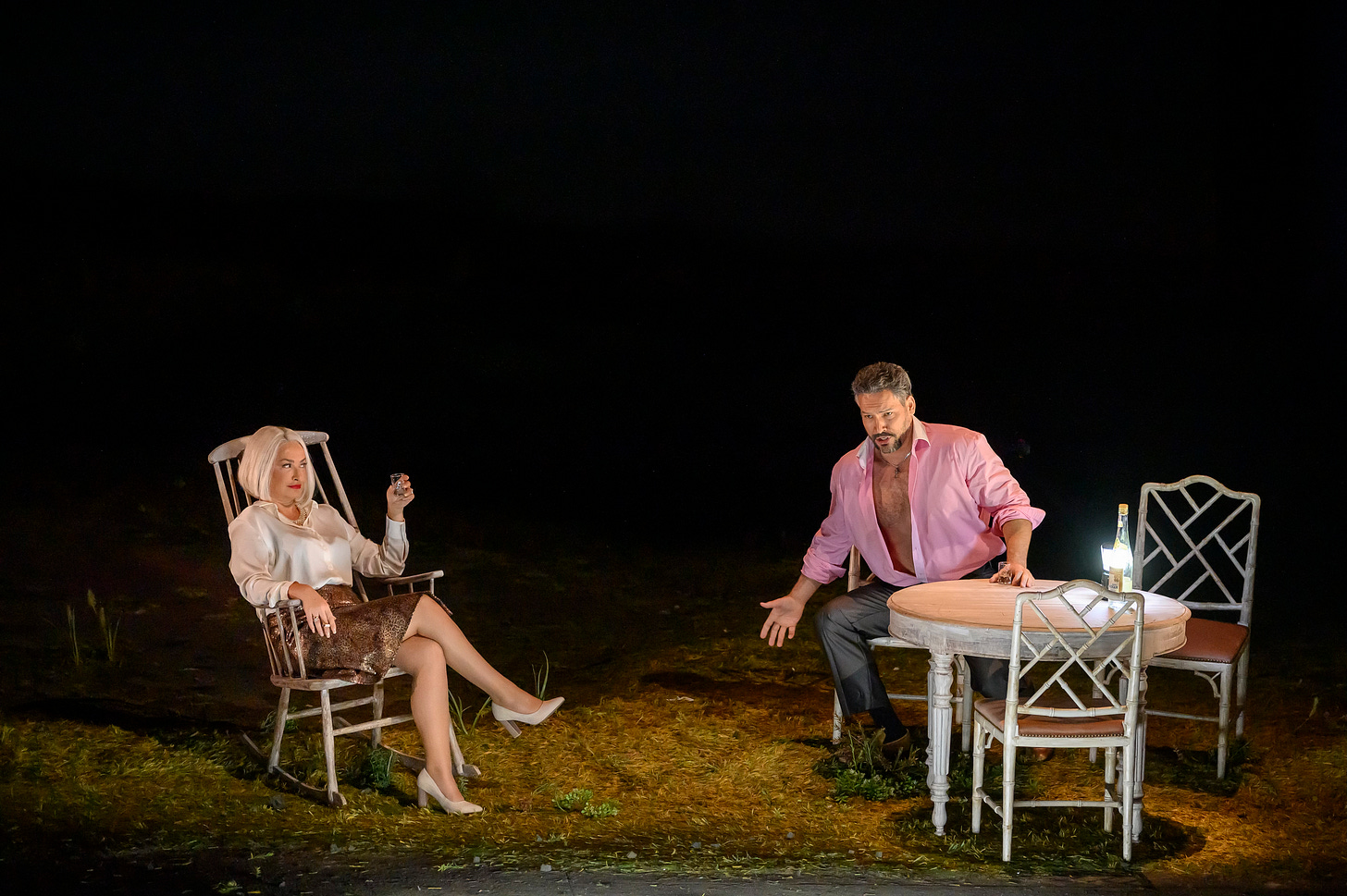
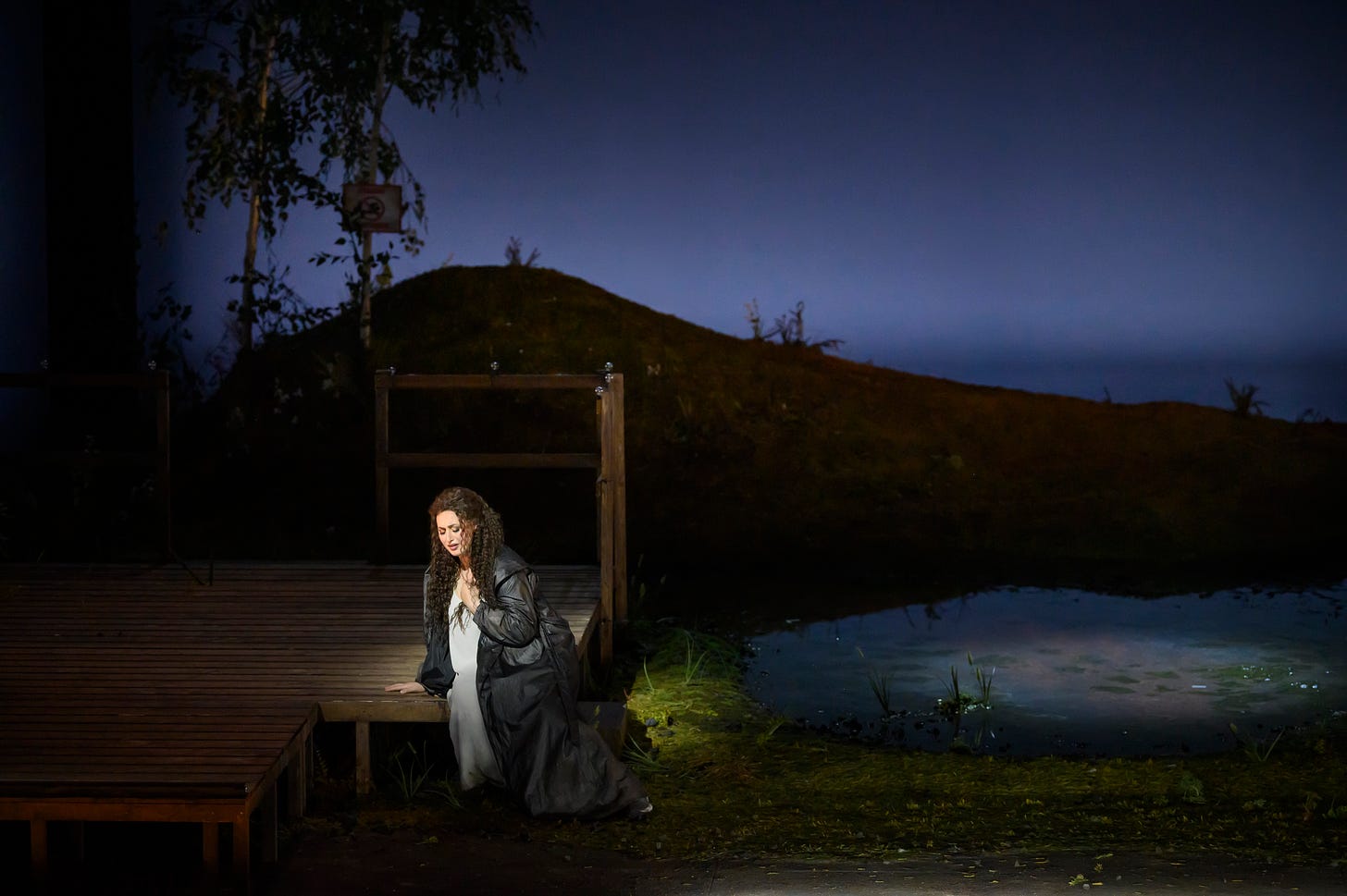
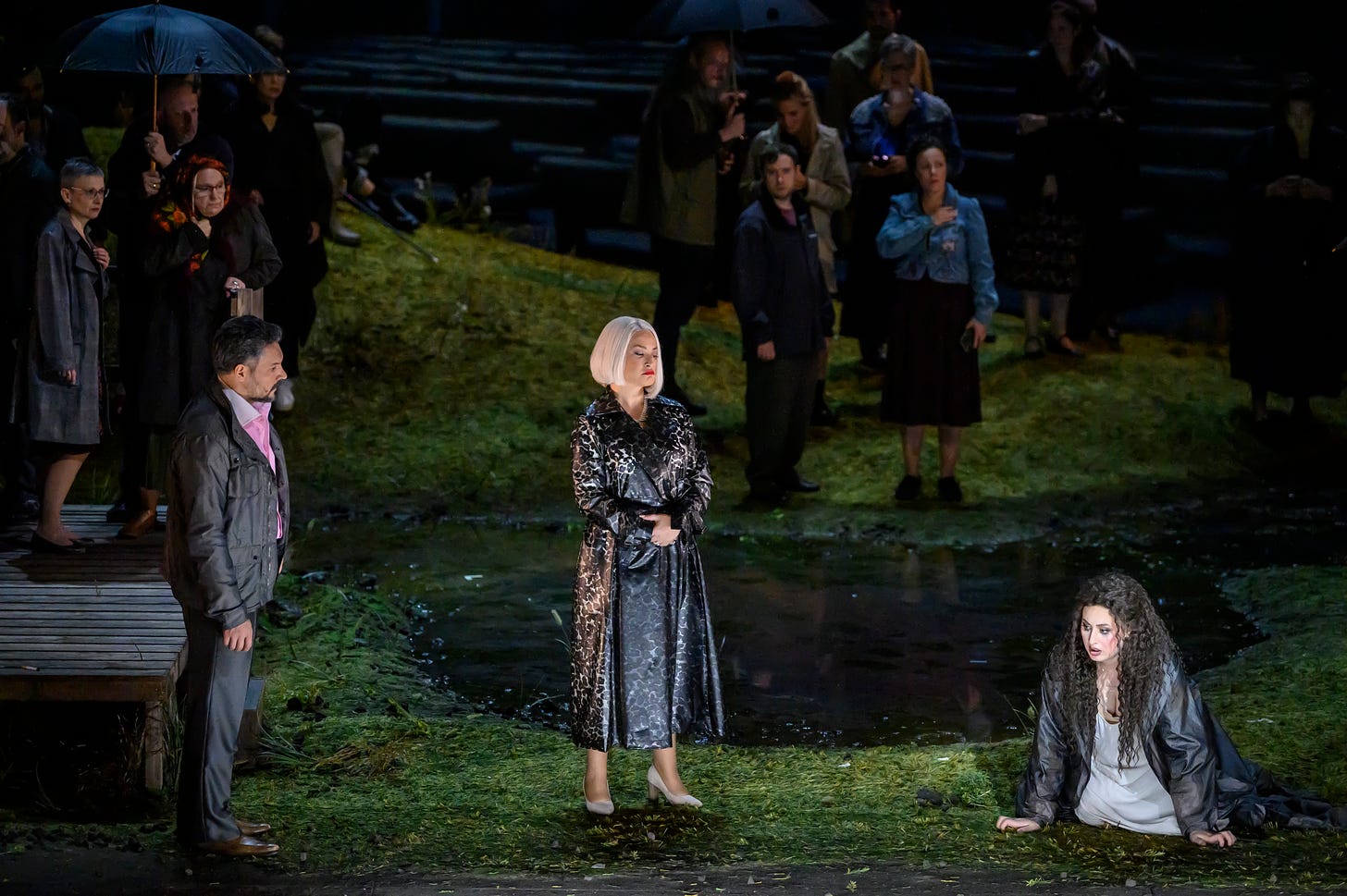
Anush is a young singer with huge promise and it is good to see her extending her repertoire into Janacek!